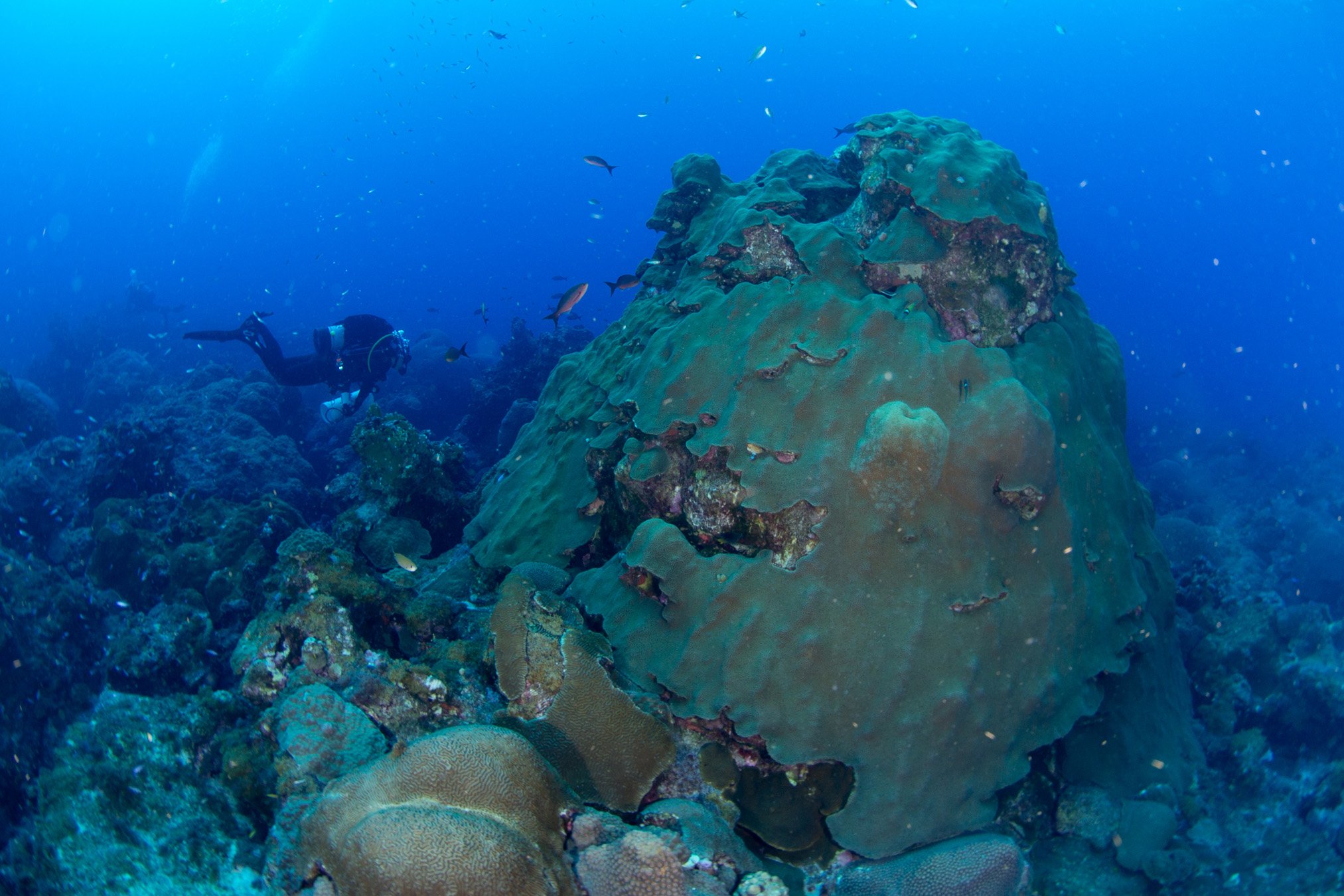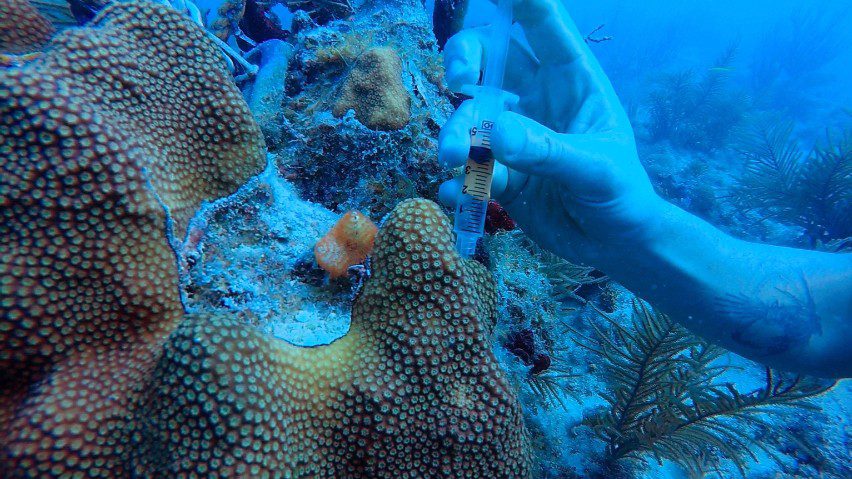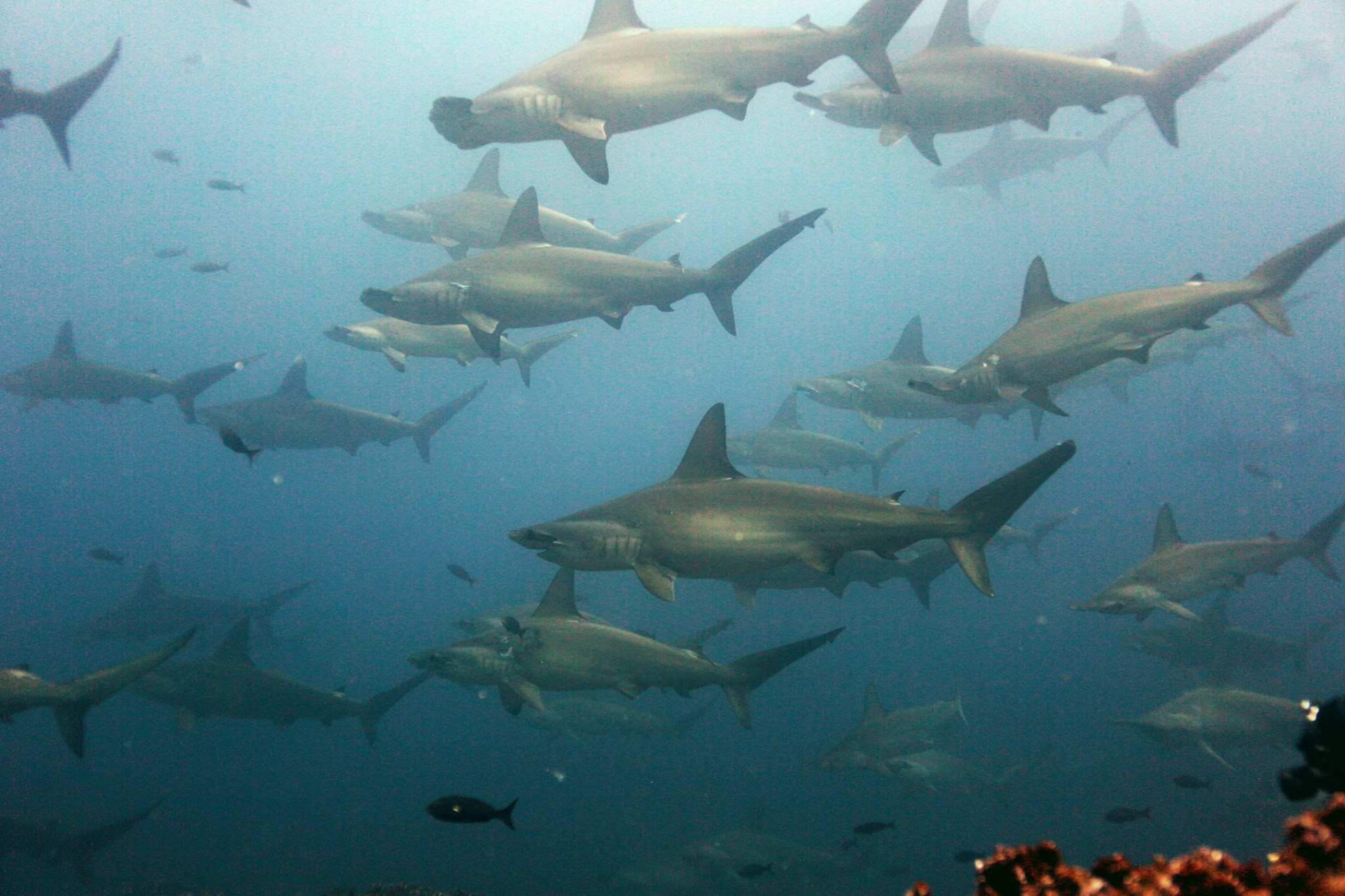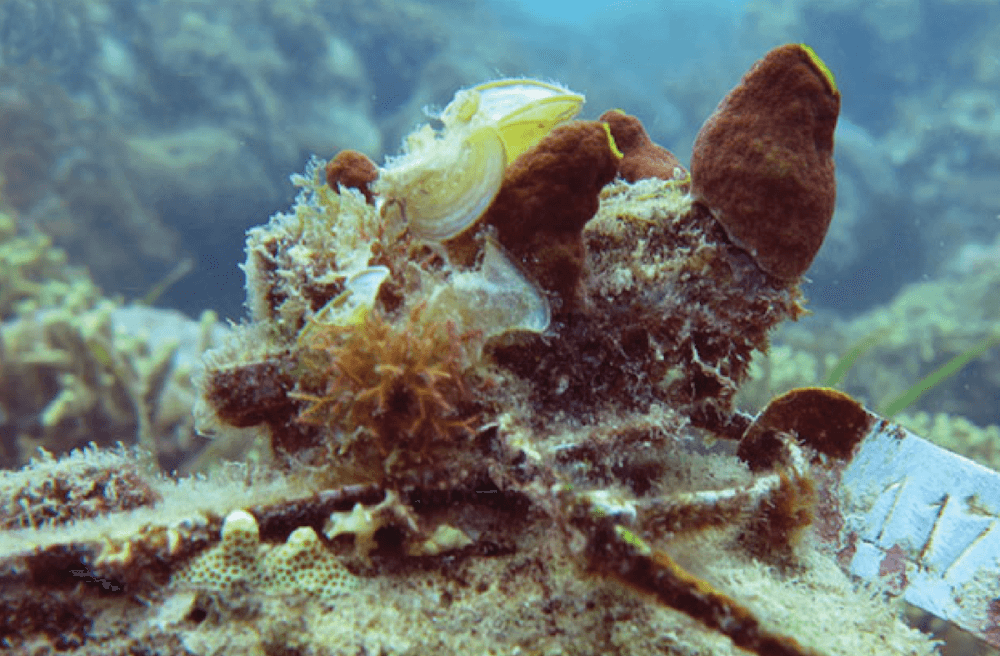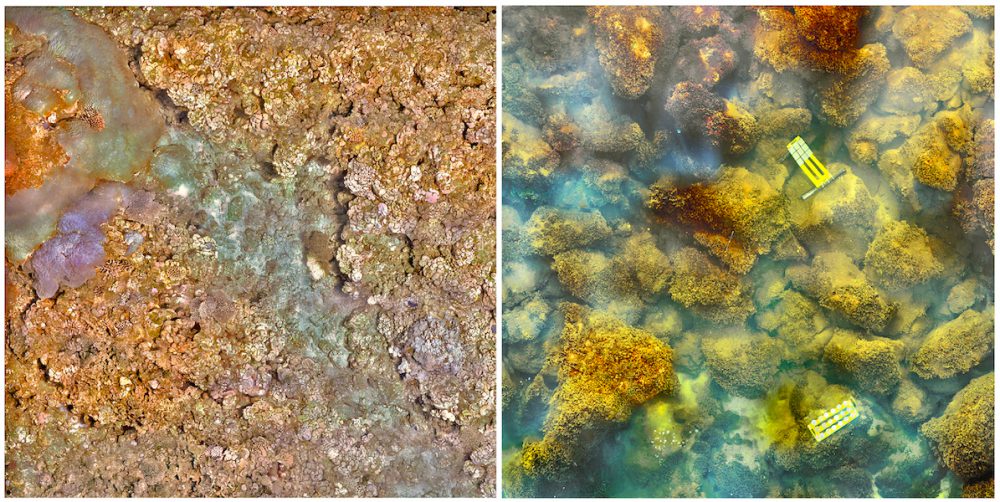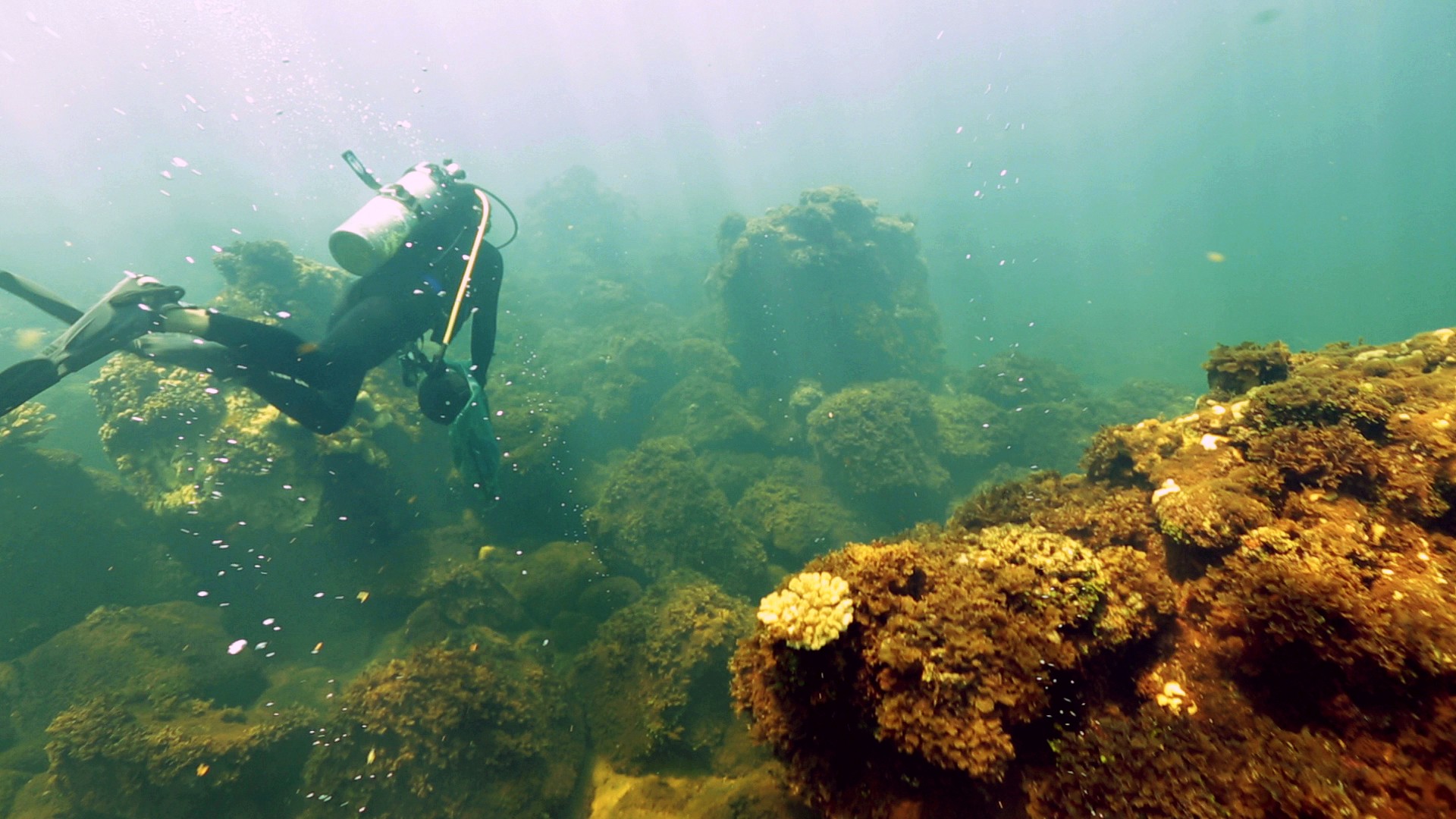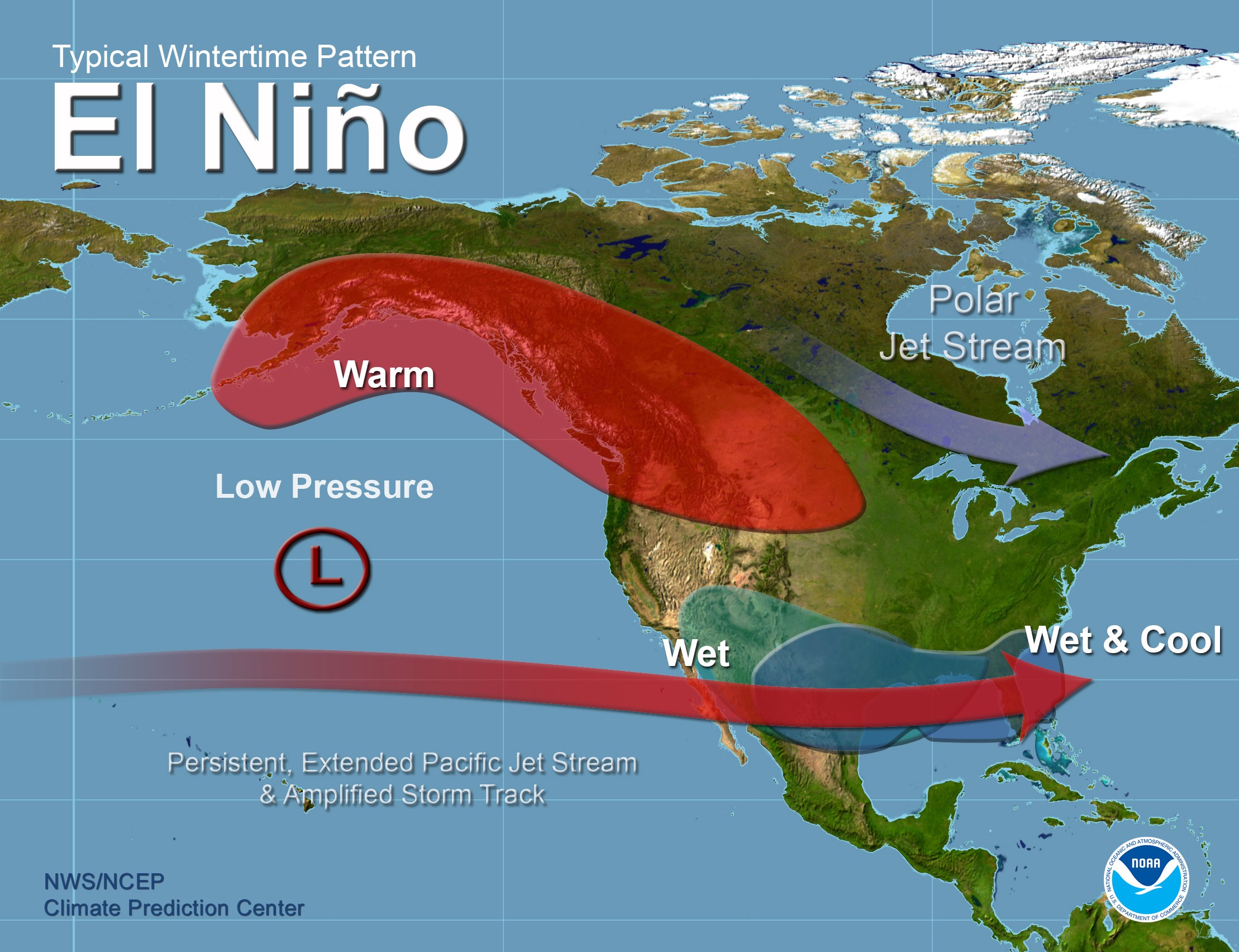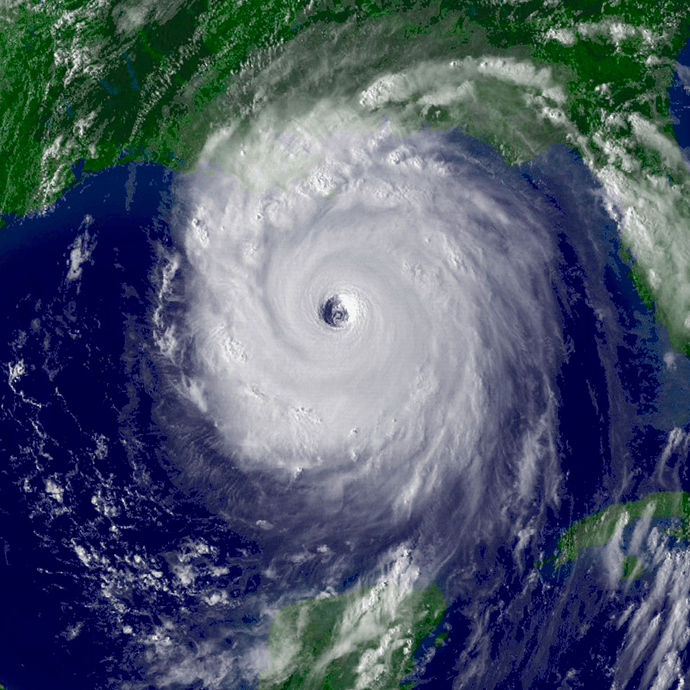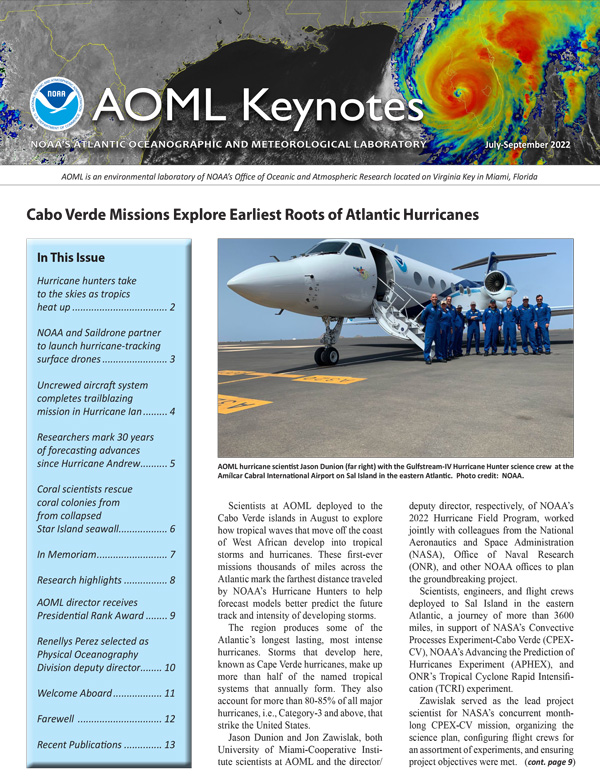Threatened Corals See Effects of Sedimentation Stress in Early Life Stages
Coral scientists at NOAA’s Atlantic Oceanic and Meteorological Laboratory (AOML) are in the process of analyzing data that may shed light on the sub-lethal effects of sedimentation stress in coral larvae. Scientists recently conducted a series of lab experiments aimed at assessing the effects of Port of Miami dredge sediments on the larval performance of the Caribbean threatened coral Orbicella faveolata (also known as the mountainous star coral). Preliminary analysis suggests significant effects of sedimentation on both the survival and settlement of coral larvae.
